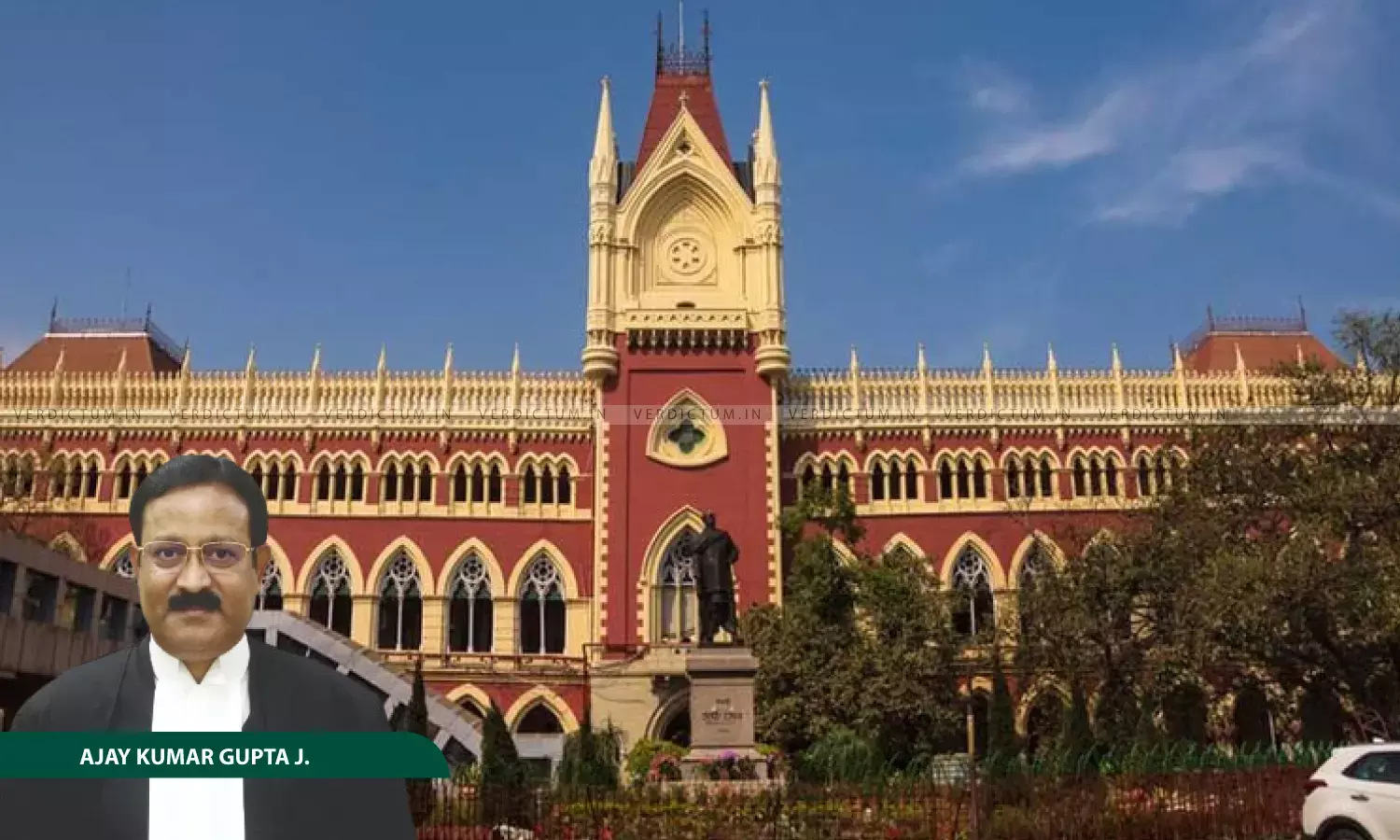Not Every Discord Amounts To Cruelty; Conduct Must Be Such As To Drive Woman To Grave Injury Or Suicide: Calcutta High Court
The High Court also said that expectation of contributing towards household expenses does not constitute cruelty.

The High Court of Calcutta, Justice Ajay Kumar Gupta
The High Court of Calcutta observed that not every instance of discord amounts to “cruelty” within the meaning of Section 498A IPC. The conduct must be such as to drive the woman to grave injury or suicide, or to compel compliance with unlawful demands for dowry.
A Revision Petition was filed by the husband to quash proceedings against him under Sections 498A of the Indian Penal Code, among others.
The Bench of Justice Ajay Kumar Gupta observed, “The opposite party no. 2 is an educated and earning woman, and the routine expectations of contributing towards household expenses, making online purchases during the Covid-19 lockdown, or being asked to feed the child by the mother-in-law, cannot, by any stretch, constitute “cruelty” within the meaning of Section 498A IPC. Likewise, payment of EMIs for a jointly acquired apartment, or the father taking the child outside, are not unusual incidents of domestic life.Where no specific role is attributed to any accused, and allegations lack particulars as to date, time, or manner of commission of offence, continuation of criminal proceedings would operate as prejudice and oppression against the accused.”
Senior Advocate Sekhar Basu represented the Petitioners, while Advocates Sujoy Sarkar and Anasuya Sinha represented the Respondent.
Case Brief
The Petitioners sought to quash the proceedings under Sections 498A/406/506/34 of the Indian Penal Code, 1860, Sections 3/4 of the Dowry Prohibition Act, 1961, among others. The Wife alleged that the Petitioner-Husband abused her physically, sexually, verbally, economically, and emotionally.
The Husband contended that the cognizance of the offences was taken mechanically, without adverting to the materials available therein or complying with the mandatory legal requirements.
Court’s Observation
The High Court highlighted that even though the wife had alleged to suffer injuries, there was no injury report or treatment papers of the hospital. The Wife did not even narrate those allegations during recording of her statements either 161 or 164 of the CrPC. Further, the wife could not specify the vital things in her statements with regard to time, date and place of being tortured or assaulted or publicly humiliated.
Resultantly, the Court was of the opinion that there were inconsistencies in her written complaint and statements made under Sections 161 and 164 of CrPC.
“The investigation has also failed to disclose even a prima facie case of physical or mental torture for non-fulfilment of dowry demand, or any entrustment or misappropriation of stridhan articles by petitioner no. 1 or the other accused”, the Court added.
The High Court noted that since the marriage between the parties was a result of a long standing love relationship, the allegation of the wife against the husband with regard to him being impatient, arrogant, demanding and uncaring cannot be acceptable to a prudent mind. It was also noted that no complaint was made between the inception of marriage in 2011 to 2022.
The Court remarked, “While this Court is conscious that cruelty under Section 498A of the Indian Penal Code may constitute a continuing offence, the law requires that allegations be clear, specific, and supported with particulars as to date, time, place, and manner.”
Further, the High Court observed that not every instance of discord amounts to “cruelty” within the meaning of Section 498A IPC. The conduct must be such as to drive the woman to grave injury or suicide, or to compel compliance with unlawful demands for dowry.
“The opposite party no. 2 is an educated and earning woman, and the routine expectations of contributing towards household expenses, making online purchases during the Covid-19 lockdown, or being asked to feed the child by the mother-in-law, cannot, by any stretch, constitute “cruelty” within the meaning of Section 498A IPC. Likewise, payment of EMIs for a jointly acquired apartment, or the father taking the child outside, are not unusual incidents of domestic life.Where no specific role is attributed to any accused, and allegations lack particulars as to date, time, or manner of commission of offence, continuation of criminal proceedings would operate as prejudice and oppression against the accused”, the Court held.
Subsequently, with regard to the charges under the SC’STs Act, the Court was of the opinion that the alleged incident of insult and humiliation by saying she belongs to lower caste, as described did not occur in public view or in public place. Therefore, it does not attract the provisions of Section 3(1)(u) of SC & ST (Prevention of Atrocities) Act.
Accordingly, the High Court quashed the proceedings against the Petitioners and allowed the Revision Petition.
Cause Title: Dr. Hiralal Konar & Anr. V. The State of West Bengal (Neutral Citation: 2025:CHC-AS:1716)
Appearance:
Petitioners: Senior Advocate Sekhar Basu, Advocates Soubhik Mitter, Rajnandini Das and Karan Bapuli
Respondents: Advocates Sujoy Sarkar, Prasun Mukherjee, Kanchan Roy, Anasuya Sinha, Rajashree Tah


